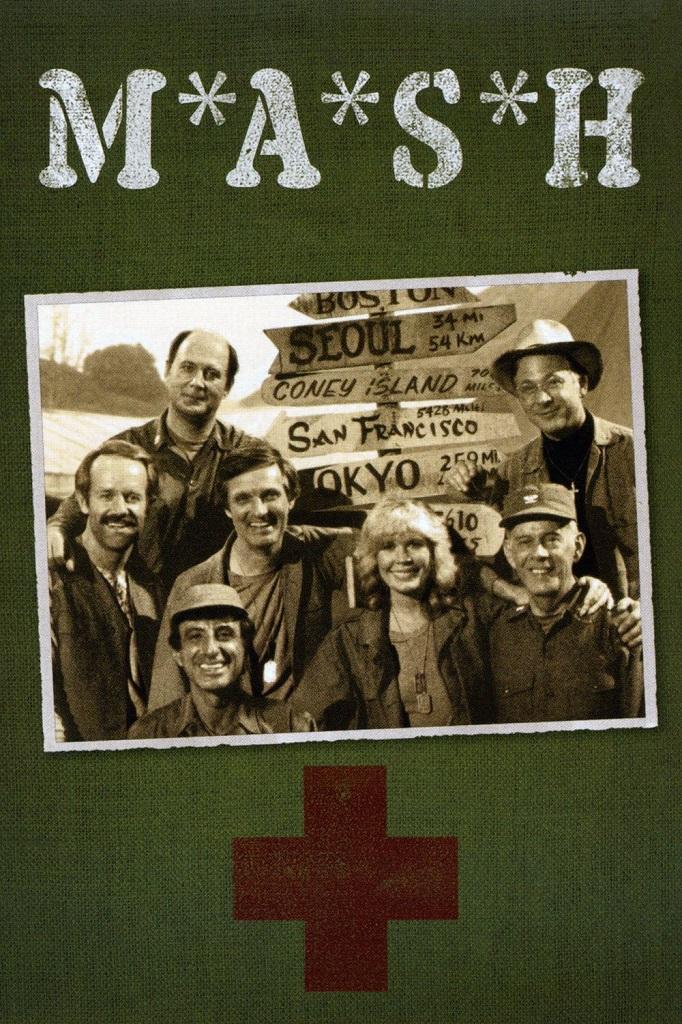“MASH” stands as one of the most iconic and enduring television series in American history, captivating audiences with its blend of comedy, drama, and social commentary. Spanning from 1972 to 1983, the show was adapted from the 1970 feature film of the same name and was inspired by Richard Hooker’s novel. Set during the Korean War, “MASH” follows the lives of medical personnel stationed at the 4077th Mobile Army Surgical Hospital (MASH) in South Korea. With its sharp wit, poignant storytelling, and memorable characters, the series left an indelible mark on television and popular culture.
1. Origin and Development
- Adaptation from Film: The TV series “MAS*H” was developed by Larry Gelbart, based on the 1970 film directed by Robert Altman, which itself was based on Richard Hooker’s novel.
- Pilot Episode: The pilot episode aired on September 17, 1972, setting the stage for the series’ unique blend of humor and drama.
2. Cast and Characters
- Alan Alda as Captain Benjamin Franklin “Hawkeye” Pierce: The witty and compassionate chief surgeon known for his anti-authoritarianism and humor as a coping mechanism.
- Wayne Rogers as Captain “Trapper” John McIntyre (seasons 1–3): Hawkeye’s partner in mischief and skilled surgeon.
- Mike Farrell as Captain B.J. Hunnicutt (seasons 4–11): Trapper’s replacement, forming a close friendship with Hawkeye.
- Loretta Swit as Major Margaret “Hot Lips” Houlihan: The head nurse initially known for her strict demeanor, later evolving into a more complex character.
- Larry Linville as Major Frank Burns (seasons 1–5): The inept and socially awkward surgeon, known for his rivalry with Hawkeye.
- Gary Burghoff as Corporal Walter “Radar” O’Reilly: The company clerk with a keen intuition, known for his radar-like abilities to anticipate events.
3. Themes and Social Commentary
- Anti-War Sentiment: “MAS*H” used the backdrop of the Korean War to critique the futility and absurdity of war, often contrasting the harsh realities with dark humor.
- Humanitarianism: The series explored themes of compassion, duty, and the human cost of war through its portrayal of medical personnel.
4. Impact and Legacy
- Longevity and Popularity: “MAS*H” ran for 11 seasons, concluding with a record-breaking finale that remains one of the most-watched episodes in television history.
- Awards and Recognition: The series received numerous awards, including multiple Emmy Awards for outstanding comedy and drama series.
5. Episodes and Storylines
- Memorable Episodes: Notable episodes include “Goodbye, Farewell and Amen,” the series finale that aired on February 28, 1983, drawing over 105 million viewers in the United States.
6. Cultural Influence
- Catchphrases and Iconic Moments: “MAS*H” introduced memorable catchphrases and iconic moments, contributing to its enduring popularity and cultural impact.
- Spin-Offs and Legacy: The success of “MAS*H” led to spin-offs like “AfterMASH” and “Trapper John, M.D.,” showcasing its lasting influence on television.
7. Production and Filming
- Innovative Techniques: The series employed innovative filming techniques, including a single-camera setup and use of a laugh track to balance humor and drama.
8. Critical Reception
- Critical Acclaim: “MAS*H” received critical acclaim for its writing, acting, and portrayal of complex characters in wartime.
9. Fanbase and Cultural Phenomenon
- Dedicated Fanbase: The show’s fanbase remains dedicated, with conventions, fan clubs, and continued interest in its characters and themes.
10. Themes of Humanity and Humor
- Balancing Drama and Comedy: “MAS*H” skillfully balanced poignant moments of humanity with sharp humor, creating a multi-dimensional portrayal of wartime life.
Conclusion
“MASH” continues to resonate with audiences for its timeless portrayal of humor, humanity, and the impact of war on individuals. Through its memorable characters, poignant storytelling, and social commentary, the series remains a benchmark in television history, influencing subsequent generations of comedies and dramas. As a cultural touchstone, “MASH” exemplifies the power of television to entertain, provoke thought, and reflect on the complexities of human experience.
